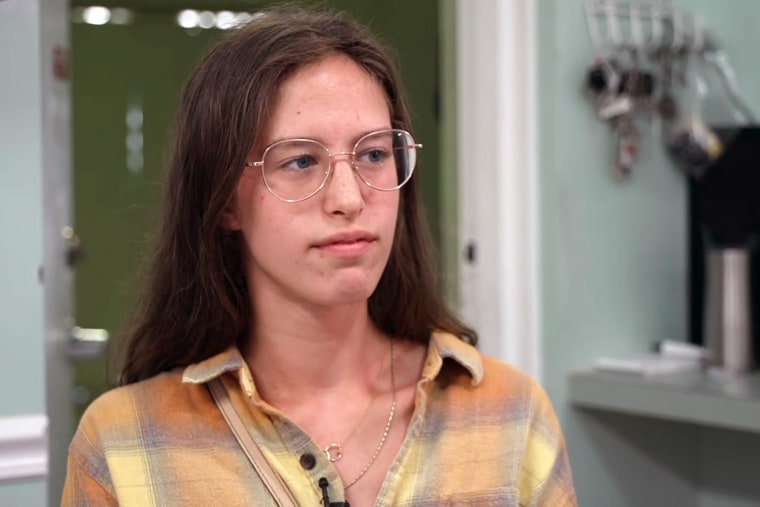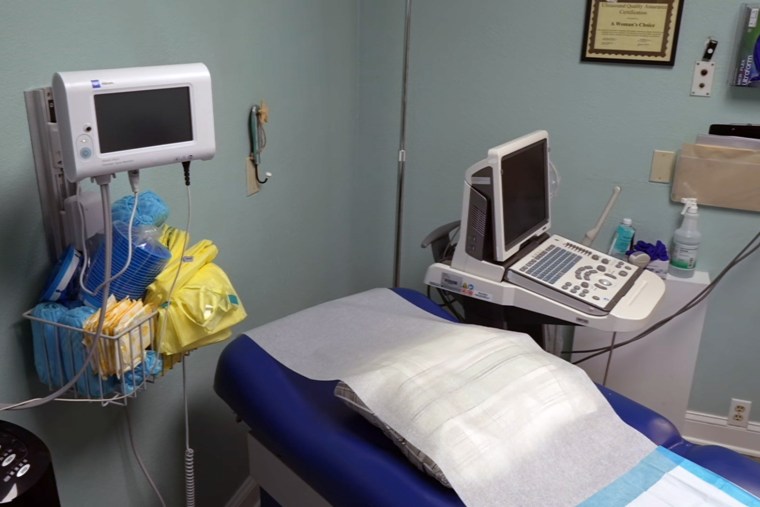JACKSONVILLE, Fla. — A ban on abortions after six weeks of pregnancy took effect in Florida on Wednesday just after midnight.
Before that, the state had been a refuge for abortion access in the South after the Supreme Court overturned Roe v. Wade. Florida banned abortions after 15 weeks in 2022, but the vast majority of its neighboring states had stricter restrictions, so more than 9,300 people traveled here last year for abortion care.
That’s more than double the number in 2020, according to data from the Guttmacher Institute, a research organization that supports abortion access. Around 84,000 abortions were performed in Florida last year, about 1 in 12 nationwide.
Florida’s new law will curtail that trend. It is now a felony in the state to perform or actively participate in an abortion after six weeks’ gestation, which is about two weeks after a missed period. The ban has exceptions for rape, incest and human trafficking up to 15 weeks of pregnancy. State law also allows abortions to save a woman’s life or to prevent “substantial and irreversible” physical impairment, but doctors might still worry about their legal liability.
“It’s going to cause delays in care that are going to cost women significant health hazards or risks,” Dr. Daniel Sacks, a provider at Presidential Women’s Center in West Palm Beach, said of the new law.
Abortion providers in Florida worked to see as many patients as possible in the weeks before the ban took effect. They said some patients were confused about Florida’s restrictions and timelines, especially given that about a year has passed since Gov. Ron DeSantis signed the six-week ban. The policy had been temporarily blocked ahead of a state Supreme Court ruling last month that cleared the way for it to become law.
Florida also requires two in-person visits to a clinic, 24 hours apart, ahead of an abortion — a rule some patients don’t know about.
Cassie, 20, a native Floridian who asked that her last name be withheld to maintain her privacy, had her first consultation at an abortion clinic in Fort Pierce on Monday. She hadn’t been aware that the six-week ban was scheduled to take effect two days later.

“I knew that they were trying to do it, but I did not know that it actually happened,” Cassie said.
She was less than six weeks pregnant, but she acknowledged that she could have easily missed that deadline once the new law took effect.
Cassie lives in an RV with her partner and her 1-year-old son. She wants another child, she said, but can’t afford it right now.
“I would not be able to provide for my son as best as I could,” she said, adding that a second child would make it “hard to even afford to eat or even to pay for small expenditures like tires on the car.”
On her way into the clinic Monday, she stopped to confront a protester who urged her to continue her pregnancy.
“First thing I said was ‘Will you help me and my family get a mortgage?’” she said.
She added that she feels for the women in Florida who might now have to carry unwanted pregnancies or travel long distances to obtain abortions.
“It’s just not right to tell a woman that there’s a certain amount of time that you have to have an abortion,” she said. “I wish I could give those women a hug and help them through it.”
Anti-abortion-rights groups are celebrating the new law.
“Florida has taken efforts to provide a sanctuary for life, especially the most vulnerable, and provide significant financial resources for women to provide a wide range of options and resources that would protect them and facilitate their decision to choose life,” said Mat Staver, founder and chairman of Liberty Counsel, a legal organization based in Florida that opposes abortion rights.
He pointed to $25 million the state has set aside to expand the Florida Pregnancy Care Network, a group of so-called crisis pregnancy centers. Such centers try to persuade pregnant women not to have abortions and offer them counseling and supplies, but some have been known to provide inaccurate or misleading information.

Nine Southern states have total abortion bans, and Georgia and South Carolina ban abortions after about six weeks. So for people in Florida and elsewhere in the Southeast who want to end pregnancies, the closest options are now most likely in North Carolina, where abortions are allowed up to 15 weeks, and Virginia.
Florida Access Network, a fund that helps people in Florida with the cost of abortions — including appointments, food and travel — is prepared for a wave of patients needing assistance with out-of-state abortions.
“We’re living in a new reality where people are going to be forced to travel long distances to get care, and many people don’t have the resources or the ability to do so,” said Stephanie Loraine Piñeiro, the organization’s executive director.
A Woman’s Choice, a network of abortion clinics with a location in Jacksonville, opened a clinic in Virginia last month in anticipation of Florida’s ban. It also operates three clinics in North Carolina. But Kelly Flynn, the network’s CEO, said those other locations won’t be realistic options for many people.
This week, she said, women came to the Jacksonville clinic from Mississippi and Louisiana seeking abortions before Florida’s ban took effect.
Going forward, Flynn said, the network plans to help women in the South understand their few remaining legal options if they want abortions.
“When they call our call center, we’ll get them that information — we’ll try to help them with logistics, travel, food, gas to help get them to North Carolina and Virginia,” she said.
Marissa Parra and Juliette Arcodia reported from Jacksonville and Aria Bendix from New York City. Bracey Harris contributed reporting from Jackson, Mississippi.






